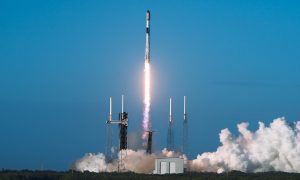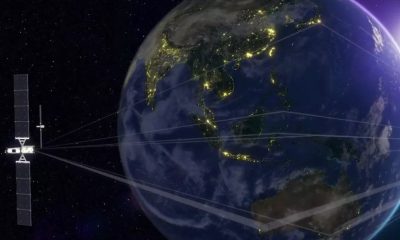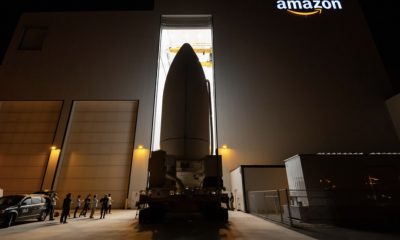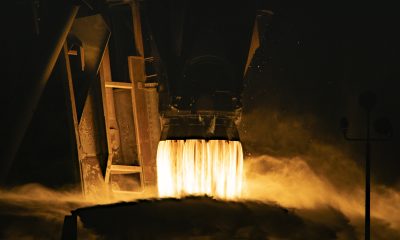News
SpaceX’s rocket explosion may have been caused by ‘something else’
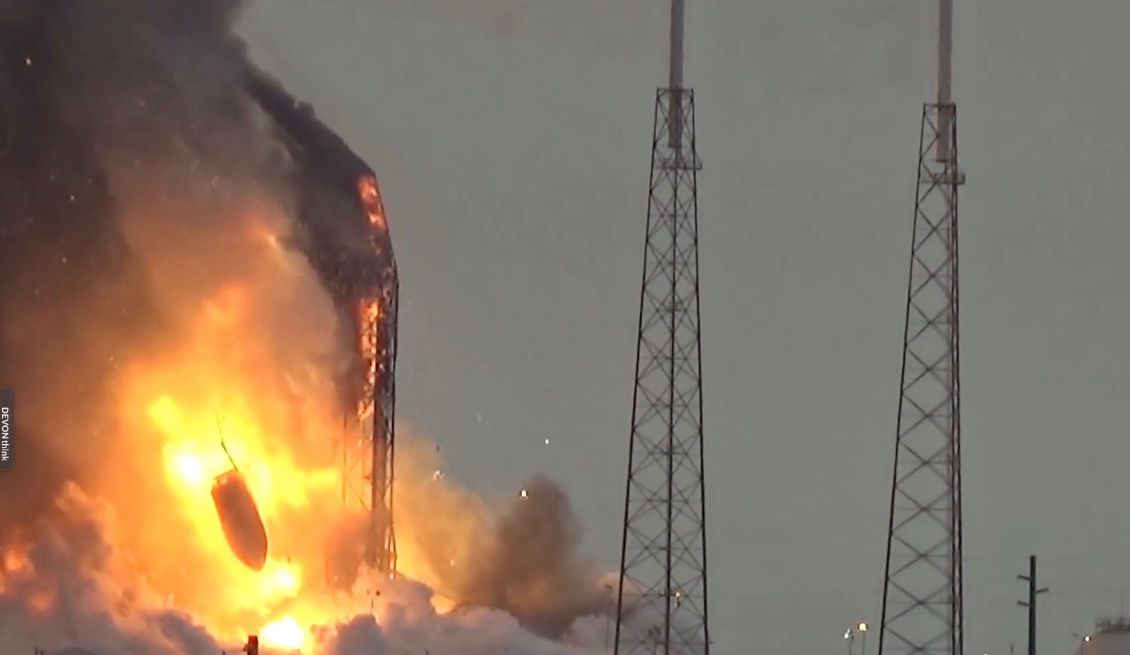
Investigation continues on what caused the explosion of SpaceX’s Falcon 9 rocket during a pre-launch test from the Cape Canaveral Air Force Station in Florida last week. CEO Elon Musk took to twitter to urge NASA, the US Air Force, and the Federal Aviation Administration to send recordings and information they have regarding the incident that destroyed Facebook’s $200 million communications satellite that was to be used in an initiative to beam high-speed internet to sub-Saharan Africa.
In a series of tweets this morning, Musk revealed that the company was “Still working on the Falcon fireball investigation.” which according to the billionaire entrepreneur is “Turning out to be the most difficult and complex failure we have ever had in 14 years.”
Still working on the Falcon fireball investigation. Turning out to be the most difficult and complex failure we have ever had in 14 years.
— Elon Musk (@elonmusk) September 9, 2016
The source for the explosion was initially suspected to originate from the upper-stage liquid oxygen tank, however Musk suggests through his tweets that it could be ‘something else’. In specific, he indicates that the engines were not on and thus there was no apparent heat source that could have led to the explosion. He goes onto to say that the company is “trying to understand the quieter bang sound a few seconds before the fireball goes off,”
According to a video captured of the explosion by USLaunchReport, a small object is seen entering into the video frame and in the direction of the Falcon 9 rocket prior to the explosion . Conspiracy theorists have suggested that some form of projectile may have impacted the Falcon 9 leading to the burst of flames. Could this be the ‘something else’ that Musk might be referring to?
Particularly trying to understand the quieter bang sound a few seconds before the fireball goes off. May come from rocket or something else.
— Elon Musk (@elonmusk) September 9, 2016
The failed mission represents a major setback for the aspiring young space company. Last week, reports indicated that Israel-based SpaceCom had plans to sue SpaceX for $50 million. Though the satellite itself was insured for $330 million, the company had issued approximately $265 million in bonds to fund the project. Spacecom would have been paid $100 million from Facebook and $164 million from the Israeli government pending the successful launch of the satellite.
SpaceX representatives said in an email to Reuters that the company is not public and does not disclose contract or insurance terms.
Lifestyle
Tesla Semi futuristic sci-fi acceleration sound will never get old
Videos that capture the Semi moving at speed are most notable due to their sheer cool factor.
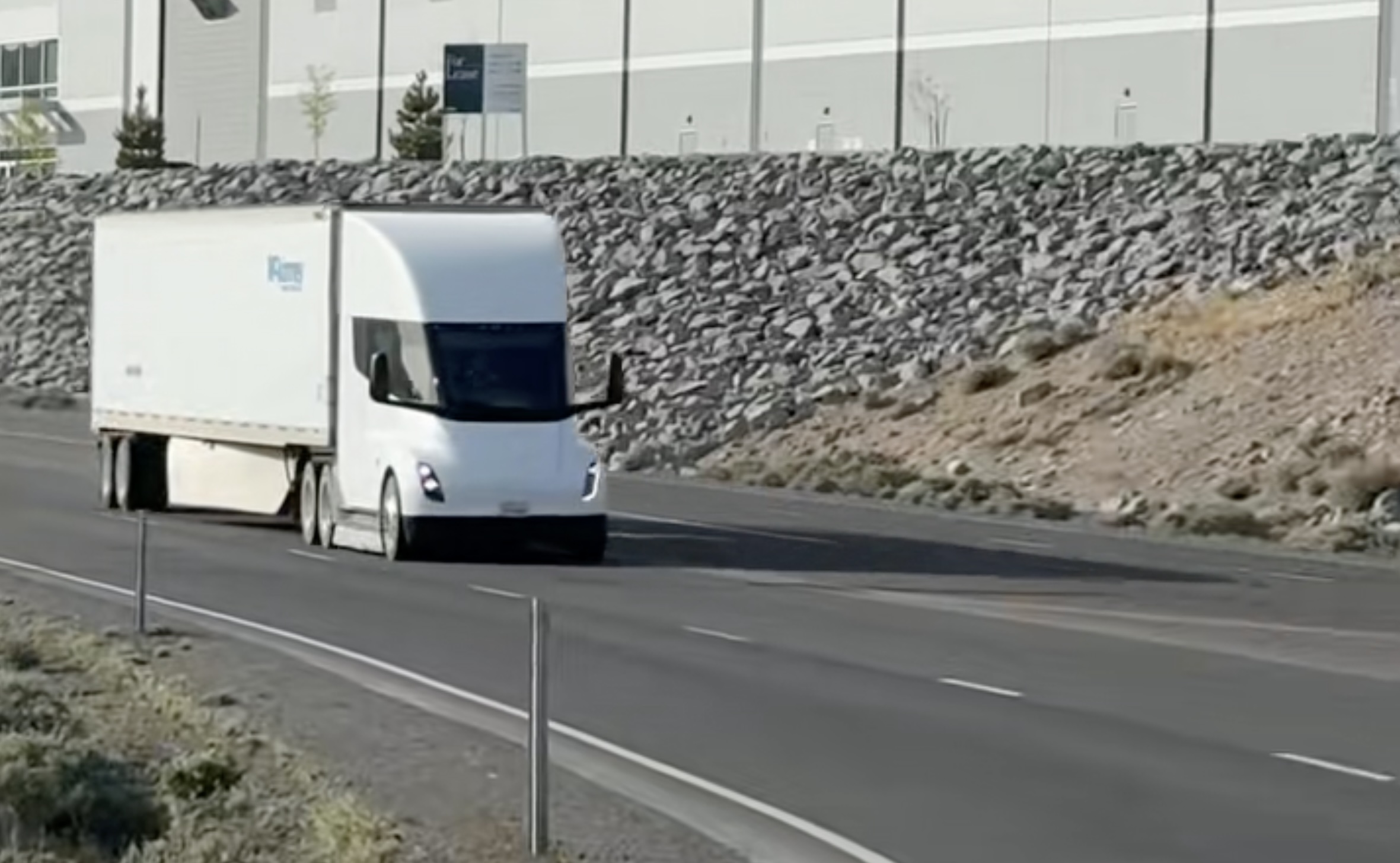
The Tesla Semi is not yet in mass production, but the company has accumulated over 7.9 million miles across its test fleet. With Tesla using the Semi for its operations, it is no surprise that sightings of the Class 8 all-electric truck have been abounding.
These sightings from Tesla enthusiasts vary, but those that capture the the Class 8 all-electric truck moving at speed are most notable, possibly due to their sheer cool factor.
Tesla Semi’s Roar
There is something that just stands out with the Semi, particularly on the road. While the Semi does not have the Cybertruck’s brutalist, angular design, it is still very striking because it’s such a massive machine that moves far too quietly for its size. This is, of course, one of the reasons why the vehicle also becomes extra noteworthy when it fires up its electric motors and accelerates.
Take this video from Tesla Owners Silicon Valley, for example, which shows the all-electric hauler accelerating while pulling what appears to be a full load. In these situations, the Tesla Semi actually becomes audible, but unlike traditional diesel-powered truck, the Class 8 all-electric truck “roars” with its own, unique futuristic, sci-fi sound. In such situations, one could feel the Semi’s raw power, which comes from its three independent motors on its rear axles.
Tesla Semi Ramp
Tesla has been promoting the Semi quite a bit as of late, and recent reports have suggested that the company is putting in a lot of effort to prepare the vehicle for its production in Nevada. Tesla’s Careers website has gone live with over 80 Semi-related job openings recently as well, and a recent report has suggested that Tesla has ramped the Semi’s factory workers in Nevada to over 1,000 employees.
The company has even shared an update video of the Semi factory’s progress near Giga Nevada, as well as the design of the vehicle’s new logo. The Semi’s updated logo is quite interesting as it features elements from the Tesla Model 3’s first logo, which was unveiled way back in 2016.
News
Robots like Tesla Optimus are a $5 trillion opportunity: analyst
This massive opportunity could be tapped by Tesla, thanks to its Optimus humanoid robot.
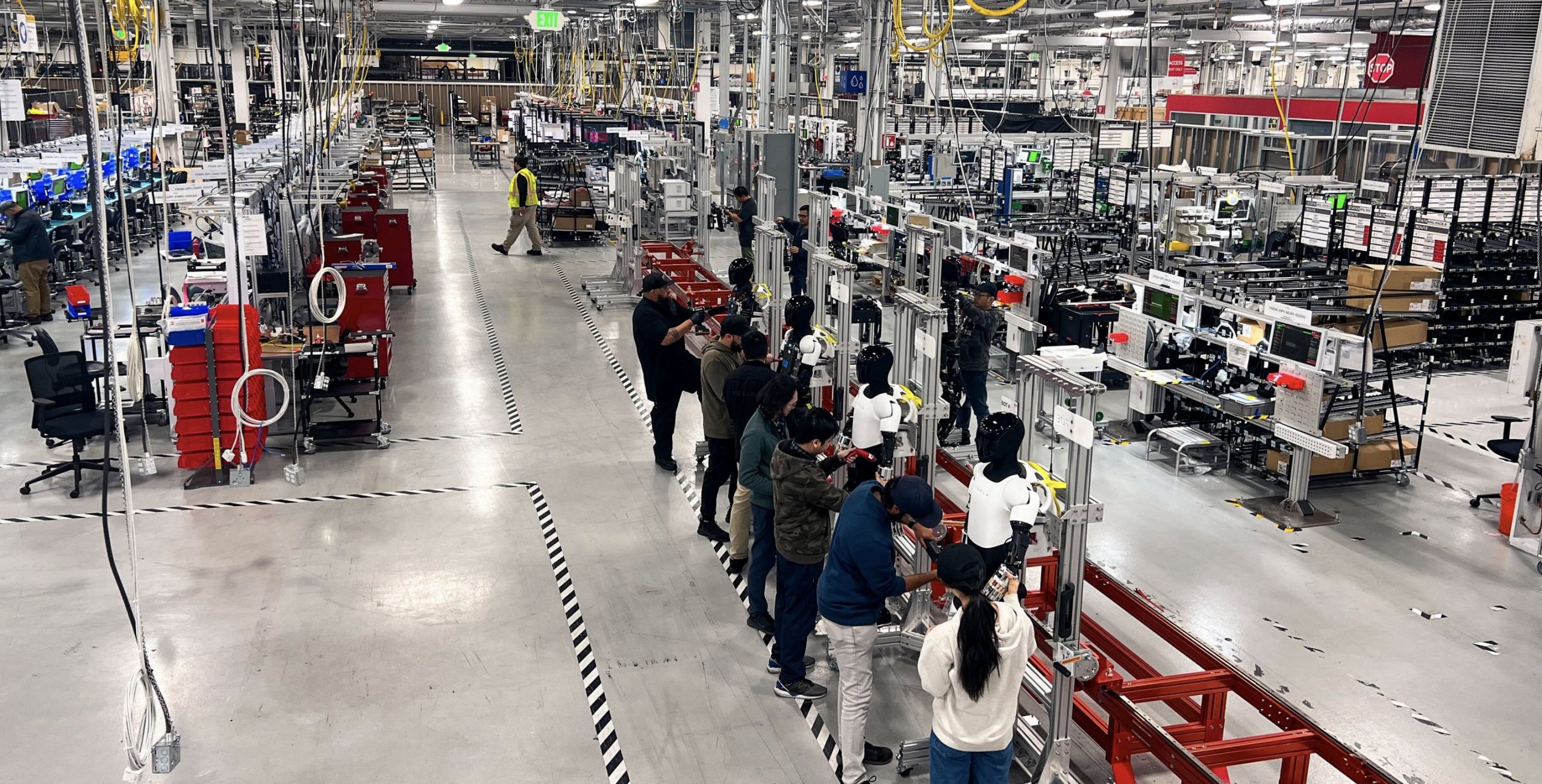
Morgan Stanley analysts have estimated that the humanoid robot market could offer a $5 trillion opportunity by the middle of the century. This massive opportunity could be tapped by Tesla, thanks to its Optimus humanoid robot.
The analysts, however, noted that the humanoid robots will likely be mostly used in industrial and commercial deployments.
The Estimates
Estimates from Morgan Stanley analysts point to humanoid robots hitting $5 trillion in global revenue by 2050. This, the analysts noted, would be about double the total revenue of the 20 largest automakers in 2024. In 2050, Morgan Stanley analysts estimated that there might be about 1 billion humanoid robots deployed.
As noted in a report from Investing.com, the shift to humanoid robots would be gradual. By 2035, the analysts estimated that just about 13 million humanoid robots will be in use, most of which will be used in industrial and commercial settings. Even in 2050, when the analysts estimated that 1 billion humanoid robots will be in use, an estimated 90% might still be used in industrial and commercial settings.
The advent of humanoid robots will likely be felt in the labor sector, Morgan Stanley analysts noted. By 2030, the analysts noted that humanoid robots could replace about 40,000 jobs. Just ten years later, in 2040, the number of jobs that robots could take over could balloon to 8.4 million. By 2050, the analysts noted that 62.7 million humans may end up watching humanoid robots do their jobs.
Tesla Potential
Morgan Stanley noted that companies like Tesla, which control the “brains, bodies, branding and ecosystems” of the humanoid robots, would be able to offer the highest value. This is good news for Tesla’s Optimus program, as it is a product that is designed to be produced at an extreme scale. During the Q1 2025 All Hands meeting, Elon Musk reiterated the idea that Optimus could very well become the biggest product of all time.
Most importantly, Musk also stated that Tesla is internally aiming to acquire enough resources to produce 10,000 to 12,000 Optimus robots this year. But even if Tesla just manages half of this number, or about 5,000 Optimus robots this year, it would already be impressive.
“Even 5,000 robots, that’s the size of a Roman legion, FYI, which is like a little scary thought. Like a whole legion of robots, I’ll be like ‘whoa.’ But I think we will literally build a legion, at least one legion of robots this year, and then probably 10 legions next year. I think it’s kind of a cool unit, you know? Units of legion. So probably 50,000-ish next year,” Musk stated.
News
SpaceX set to launch Axiom’s mission for diabetes research on the ISS
Axiom’s Ax-4 will test CGMs & insulin stability in microgravity—potentially reshaping diabetes care for Earth & future astronauts.
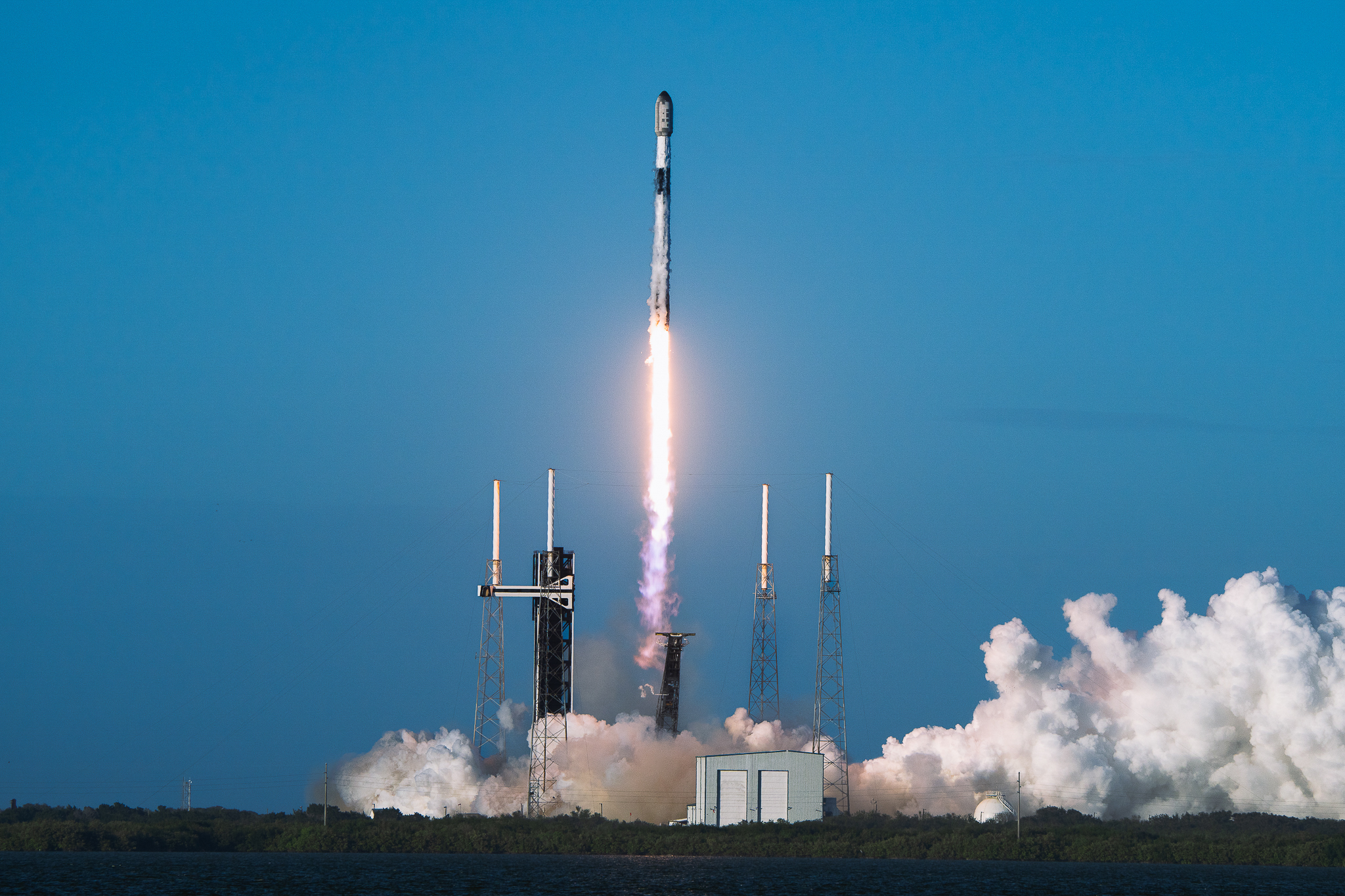
Axiom Space’s Ax-4 mission is set to launch on a SpaceX Falcon 9 rocket. Ax-4 will advance diabetes research in microgravity, marking a milestone for astronaut health.
Axiom Space’s fourth crewed mission is scheduled to launch with SpaceX on May 29 from NASA’s Kennedy Space Center in Florida. The Ax-4 mission will carry a diverse crew and a record-breaking scientific payload to the International Space Station (ISS).
The Ax-4 crew is led by Axiom’s Peggy Whitson and includes Shubhanshu Shukla from India, Sławosz Uznański from the European Space Agency, and Tibor Kapu from Hungary. The mission represents firsts for India, Hungary, and Poland, with Uznański being Poland’s first astronaut in over 40 years.
Ax-4 will conduct nearly 60 science investigations from 31 countries during its two-week ISS stay. A key focus is the “Suite Ride” initiative, a collaboration with Burjeel Holdings to study diabetes management in microgravity.
“The effort marks a significant milestone in the long-term goal of supporting future astronauts with insulin-dependent diabetes (IDDM), a condition historically deemed disqualifying for spaceflight,” Axiom noted. The mission will test Continuous Glucose Monitors (CGMs) and insulin stability to assess their performance in space.
Axiom explained that testing the behavior of CGMs and insulin delivery technologies in microgravity and observing circadian rhythm disruption could help diabetes experts understand how CGMs and insulin pens can improve diabetes monitoring and care in remote or underserved areas on Earth. The research could benefit diabetes management in isolated regions like oil rigs or rural areas.
The mission’s findings on insulin exposure and CGM performance could pave the way for astronauts with diabetes to safely participate in spaceflight. As Axiom and SpaceX push boundaries, Ax-4’s diabetes research underscores the potential for space-based innovations to transform healthcare on Earth and beyond.
-

 News1 week ago
News1 week agoTesla’s Hollywood Diner is finally getting close to opening
-

 Elon Musk2 weeks ago
Elon Musk2 weeks agoTesla doubles down on Robotaxi launch date, putting a big bet on its timeline
-

 News5 days ago
News5 days agoTesla is trying to make a statement with its Q2 delivery numbers
-

 News2 weeks ago
News2 weeks agoTesla’s top investor questions ahead of the Q1 2025 earnings call
-

 Investor's Corner1 week ago
Investor's Corner1 week agoLIVE BLOG: Tesla (TSLA) Q1 2025 Company Update and earnings call
-

 Elon Musk2 weeks ago
Elon Musk2 weeks agoTesla reportedly suspended Cybercab and Semi parts order amid tariff war: Reuters
-

 Elon Musk2 weeks ago
Elon Musk2 weeks agoElon Musk continues to push optimistic goal for Tesla Full Self-Driving
-
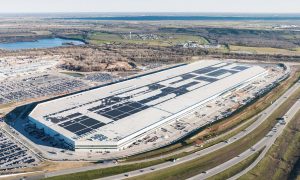
 News2 weeks ago
News2 weeks agoThese ex-Tesla supply chain managers started an AI inventory firm


